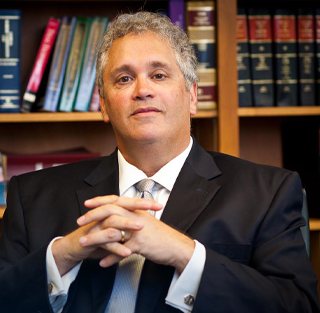Table of Contents
Driver Fatigue is a Leading Cause of Truck Accidents
Commercial truck accidents occur for a variety of different reasons, but one of the biggest safety problems on our highways is fatigued truck drivers. Fatigue may cause semi truck drivers to lose their focus on the road or, even worse, to doze off behind the wheel. However, when an industry generally pays its drivers by the mile, the incentive is to push the driver’s levels of tolerance.
Large trucking companies often put drivers on the road who are under very tight delivery schedules, thereby encouraging them to get behind the wheel when they are too tired to drive safely. The effects of sleep-deprivation have been well-documented, and include sluggish response times, impaired attention, and stunted decision-making functions – collectively mimicking symptoms of drunkenness. When a driver is drowsy, the odds of a crash soar – and that’s not a coincidence.
A 33-month Federal Motor Carrier Administration study revealed 13 percent of semi-truck accidents are caused by fatigue. From 2018 to 2019, the number of large trucks involved in:
- Fatal crashes increased 2 percent, from 4,909 to 5,005, and the large truck involvement rate (large trucks involved in fatal crashes per 100 million miles traveled by large trucks) increased 4 percent, from 1.61 to 1.67.
- Injury crashes increased by 6 percent, from 112,000 to 119,000.
Atlanta truck accident attorneys know that while some folks pride themselves on their ability to get by on very little sleep, when semi-truck accidents are caused by fatigue, the drowsy driver can be held liable to cover the damages they caused.
Further Reading: Filing a Truck Accident Injury Lawsuit in Georgia
Georgia’s Regulations on Truck Driver Fatigue
The state of Georgia has adopted the federal interstate trucking regulations that limit a truck driver’s service time. Even with federal hours-of-service restrictions that are intended to diminish the danger, semi-truck drivers continue to be prone to being overly-tired on the road.
FMCA Rules on Driver Limitations & Tracking
Mandated by the United States Federal Motor Carrier Safety Administration for a majority of commercial vehicles in December 2017, electronic logging devices located in the truck cab record important activity data regarding the operation of the truck, as well as driver hours of service (HOS) and record of duty status (RODS).
Fitness Standards & Mandatory Sleep Apnea Testing
Truckers and their rigs must also meet certain Safety Fitness standards, as outlined by the FMCSA. In addition, the U.S. Court of Appeals for the Eighth Circuit affirmed the FMCSA’s rule on mandated sleep apnea testing for truck drivers. In Owner-Operated Indep. Drivers Ass’n, Inc. v. FMCSA, the truckers insisted the tests were onerous and led to unnecessary delays in certification.
Penalties for Failure to Adhere to Regulations
Drivers and motor carriers who fail to abide by stringent federal safety guidelines may face administrative fines and penalties. Such findings can make establishing your civil case for negligence easier. In cases where the violation was egregious and showed a complete lack of care for the safety of others, your attorney may request punitive damages on top of your economic and non-economic damages.
The law firm of Apolinsky & Associates, LLC, can help you understand the complex state and federal regulations governing commercial truck drivers. As a member of the Association of Plaintiff Interstate Trucking Lawyers of America (APITLAmerica), Stephen D. Apolinsky has particular interest and experience in the nuances of commercial trucking accidents in Georgia and Alabama. His track record of success, including recovering over $60 million for the families and individuals injured or killed, demonstrates his experience in the field.
Further Reading: Rules and Regulations for Truck Driver Service Hours & Logbooks
How Verifying Semi-Truck Driver Fatigue Helps Your Georgia Injury Case
No matter how badly you are hurt in a truck crash, the truth is you may not be able to collect much at all if you can’t prove the truck driver was at least half at-fault. Even if you are less than 50 percent at-fault, Georgia’s comparative negligence law, O.C.G.A. 51-12-33, will reduce your damages proportionate to your own fault.
Sometimes fault is clear-cut, but sometimes the determination is more subjective. Because all crashes – semi-truck or not – are complex events with a myriad of influencing factors, including time of day, weather conditions, driver training/experience, design and maintenance of the vehicle, and the condition of the highway. What’s more, crash reconstruction experts are rarely able to nail down a single cause, and assigning “percentages” isn’t an exact science. The more evidence you have showing the truck driver bore the greatest responsibility, the more likely you are to win, and the higher your damage award is likely to be.
Any reasonable commercial truck driver who gets behind the wheel of a big rig without enough sleep knows he or she is taking a big risk. That is failure to exercise reasonable care, which is the basis for asserting negligence.
Proving Truck Driver Fatigue Caused Your Wreck
Proof of truck driver fatigue might be used as evidence that the employer or motor carrier imposed unreasonable delivery demands, possibly even encouraging the driver to skirt FMCSA hours-of-service rules. That could mean the employer or carrier is not only vicariously liable but also directly liable.
Unfortunately, proving that the truck driver who caused your accident was fatigued in a civil injury case can be challenging, as there is no real roadside sleep deprivation test akin to an alcohol breathalyzer or a check of vehicle maintenance. (Though as Science American recently reported, scientists are working on it, possibly in the form of a sensor-studded brain cap.)
Until then, your best bet for establishing truck driver fatigue as a factor in a semi-truck crash is to work with an experienced Atlanta Personal Injury Attorney who specializes in truck accident cases. The stronger case you can make, the more likely you are to recover full damages.
The foregoing answers are not legal advice and are merely a general overview. You are advised to consult a lawyer to address your specific situation. For more information or to inquire about a free consultation, contact Stephen D. Apolinsky, an experienced Atlanta injury attorney, at Apolinsky & Associates at (404) 377-9191 or email him at steve@aa-legal.com.



